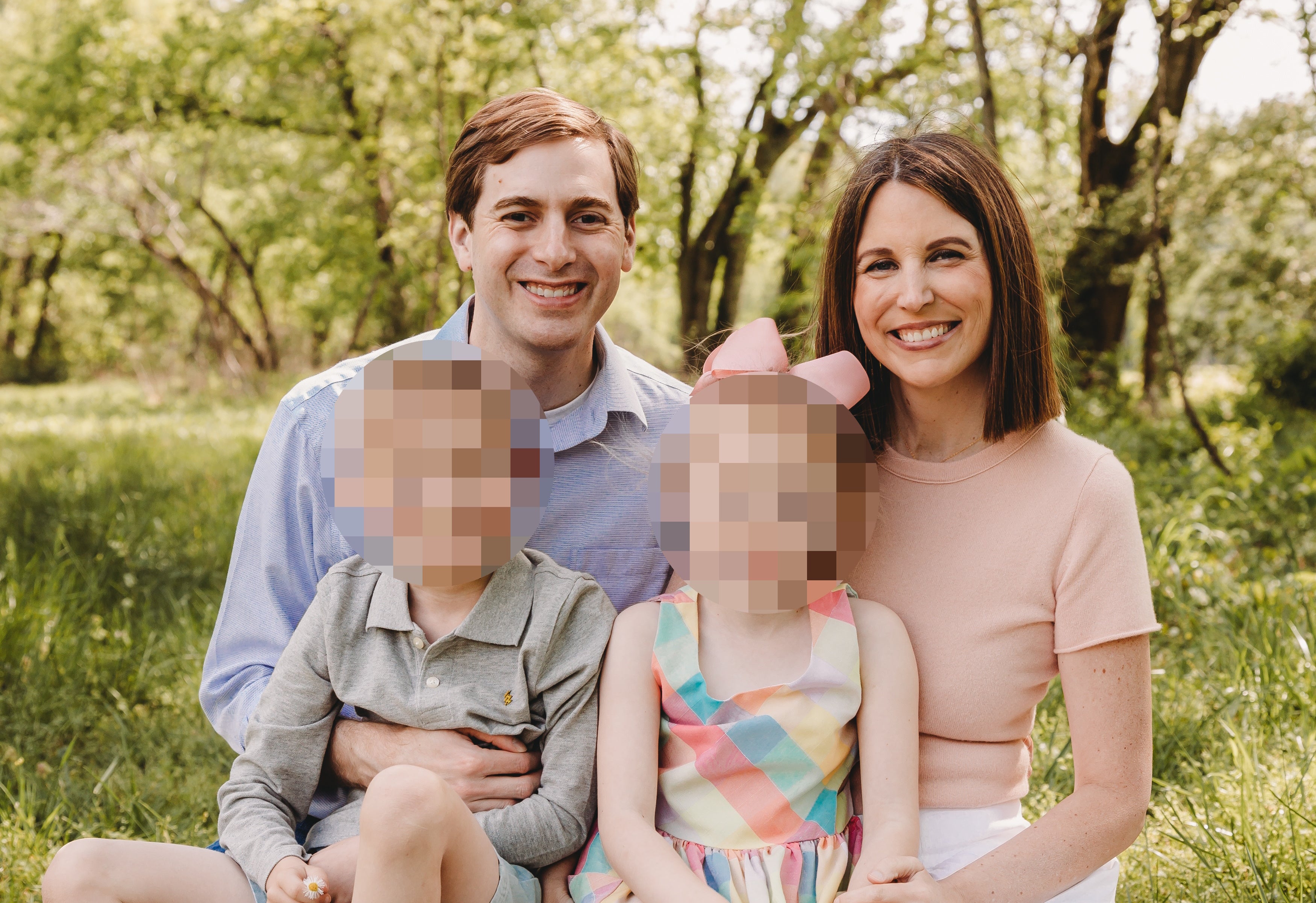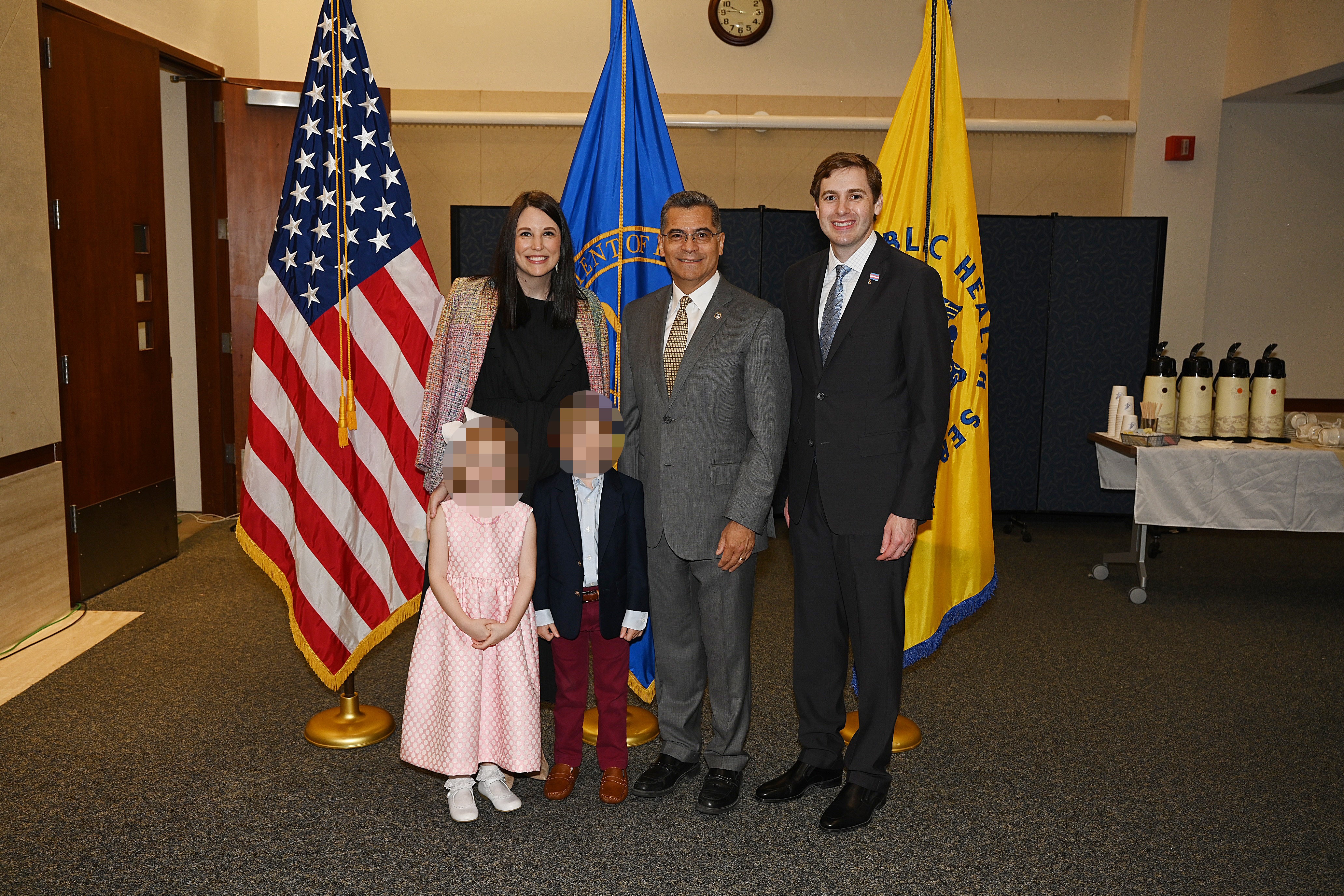Stacy Davis and her family spent this week on the beach in Maine — chasing crabs, digging holes, collecting shells, and taking brief dips in the still-chilly ocean — trying to ignore the national news that will change their lives.
But when their vacation is over, they'll be back in Davis' beloved Tennessee, where the healthcare that brought them to New England has been made illegal.
"I don't know a better way to say it: it just sucks," the 42-year-old realtor and mother of two tells The Independent, after the conservative-dominated Supreme Court upheld Tennessee's 2023 ban on trans healthcare for under-18s last week.
That's because one of Davis's two young children is transgender, and within the next few years will probably begin taking puberty blocking drugs as part of a long-term medical transition.
Even before the SCOTUS decision, they’d decided to combine their visit to see out-of-state medical specialists with a family road trip.

Yet while many families with trans kids, including some Davis knows, have moved to blue states, Davis and her husband are adamant that they will stay in Tennessee as long as they're able — even if it means having to travel interstate for healthcare.
"This is our home. We're not going anywhere," Davis tells The Independent.
"Nashville is where I'm from. This is my community as much as anybody else's; it's my child's community as much as anybody else's. So if you want us to get out, you're gonna have to try harder."
‘The most normal, sweet, kind kid in the universe’
Born and raised in Tennessee, Davis has lived there most of her life and always planned to raise her kids in her home state. She and her husband John are parents to a set of 8-year-old twins. At a very young age, one of her children, who we'll call 'A’, began disputing the gender assigned to them at birth. Davis asked The Independent not to publish details of her child's identity, including their gender, so as to preserve their privacy.
They were very direct, recalls Davis. "[They] would say: 'mom, why do you call me a [girl or boy]?' Or 'stop calling me [that]'." Often the questions would come at night, in one of those "whispered, quiet conversations" that often happen when putting a child to bed.

Though both Davis and her husband describe themselves as socially liberal progressives, they knew little about transness and did not know any trans people personally. Nevertheless, A grew more adamant, and their dysphoria more intense.
So on the advice of their therapist, the Davises began letting A choose how they wanted to dress and be addressed. "They call the shots," Davis says. "We just followed their lead."
Now, Davis says, A is "the most normal, sweet, kind, amazing, empathetic person in the whole universe." As they hit puberty, it's likely they will begin taking medication to align their body with their gender identity, which if started early enough makes trans people more or less indistinguishable from cis people of the same gender.
But in 2023 Tennessee's Republican-dominated legislature passed Senate Bill 1, which bans puberty blockers, hormone therapy, and gender-affirming surgery for trans under-18s (but not for cisgender kids). The recent SCOTUS decision dashed any hopes of overturning it and instead gives Republicans across the U.S. a green light to continue their war on life-saving medical treatments.

Although Davis expected the Supreme Court's decision, it does make a potential medical transition for her kid more complicated. This month's road trip to meet specialist providers — along with Gettysburg, the Boston Freedom Trail, and Bar Harbor — has been a "real joy". But in future the family would need to take A to New England at least four times a year at their own expense.
"Who takes off of work? Who takes the flight?" says Davis, speaking from the sunny Maine resort town of Ogunquit.
"Are we traveling with four people or two people? We don't want to leave our other child behind; we try to do everything as a family,” she says. "Those decisions come with real financial costs. And we're in a position where we can do that, but many families aren't."
‘You’re just constantly living in limbo’
Despite the costs, Davis is intent on staying in Tennessee as long as they can.
"I love the state of Tennessee. I even get choked up saying that," she says, voice briefly cracking. "So many wonderful people live there. And you can't effectuate change by leaving. You have to stay, until you can't. And that's what we'll do."
In Nashville, she has a strong community: her parents, four sisters and their partners, a "great" school, and various other supportive friends. "Our mantra has sort of been 'try harder'," she says. "If political leaders want us out, want other trans folks out, they gotta try harder."
That doesn't mean she's not scared. Some states, including Texas, Mississippi, and Indiana, have taken steps to define trans-positive parenting as child abuse, and investigate parents who help their kids get transition care.

"If you try to criminalize parents for providing healthcare to our children, we'll leave. If you try to take my children from me, we'll leave," says Davis. "I'll have no other option."
Even so, the uncertainty is stressful and exhausting. The family don’t know where their child will go to school next year, or whether they'll live in the same house next year. "I know it's so petty, but maybe we've outgrown our current house. We would never buy a bigger one in Nashville, because everything is year by year, or month by month," Davis says.
"Every legislative session we are really holding our breath and waiting to see what is gonna come. You're just constantly living in this limbo."
For now, at least, A — who is not old enough to have access to the internet — is blissfully ignorant of the political storm raging around them.
"[They] don't know a single thing," Davis says. "We protect [them] fiercely.... we just want them to be a child, so we bear the brunt of these big heavy emotional decisions.
"I don't know if that's what's best for every family, but that's what's best for us. They don't know about Skrmetti, they don't know about the potential of moving, and they don't know that there are people out there who, quite frankly, hate them.
"This hatred... it's not part of [them]. It will be, at some point, like it is to everybody. But it's not yet, and we're not gonna do anything to speed that up."
So over the next couple of weeks, the family will see a Red Sox game in Boston, visit Cape Cod, and drive their Ford Explorer back to Nashville. Everything after that is up in the air.

 4 hours ago
1
4 hours ago
1









